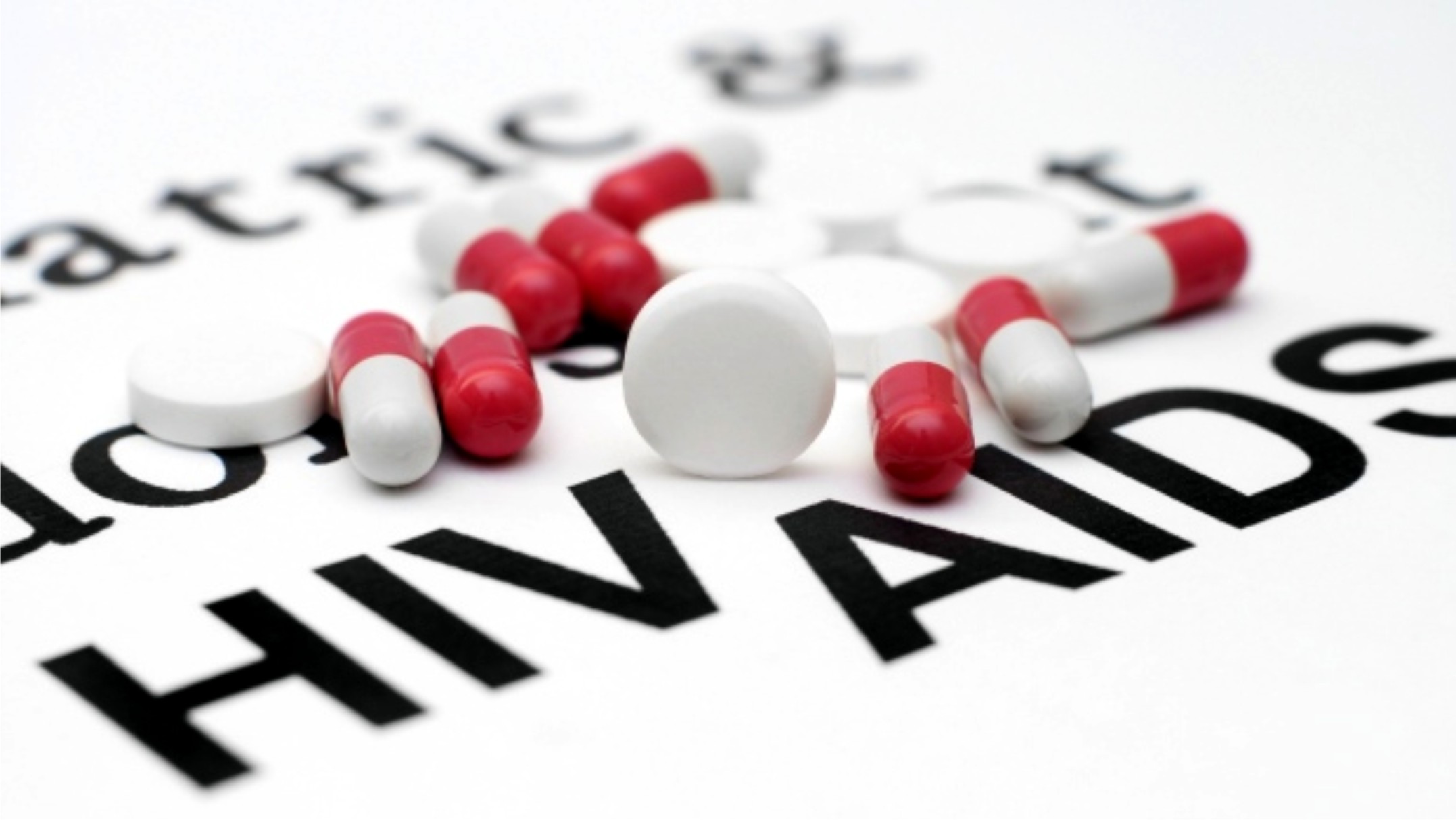Health
HIV/AIDS: NACA Seeks General Testing To Check Spread …As Focus Shifts To COVID-19

Following increase in HIV infection in Nigeria, the National Agency for the Control of AIDS (NACA), has called for testing of the general population in order to ascertain new infections, and placement of infected persons on treatment.
Making the call recently in an exclusive interview in Port Harcourt, the Director, Research, Monitoring and Evaluation in NACA, Dr Greg Ashefor, hinted that this level of testing would be the best to check the current trend of the virus in the country.
Dr Ashefor noted that what partners in the country are doing is “strategic testing”, which identifies specific publics such as pregnant women, identified key populations (men having sex with men, female sex workers, etc).
“Partners cannot do the general population testing. What the partners are doing is strategic testing. Government should do more testing by testing the general public, called ‘testing for prevention’, as many people are in the state they should be able to ascertain their status”, he said.
He explained that such general testing for the population should be followed by treatment in what he called “Test and Treat”.
“The more you link them (new infections) to treatment, the more you attain viral control, viral suppression, the more you will control the HIV epidemic.
“So, the way we can get to zero transmission, and zero death by 2030 is for more people to be tested”, he said.
Meanwhile, Dr Greg Ashefor has noted that the emergence of the COVID-19 pandemic has shifted attention from HIV to the pandemic, thus, affecting HIV/AIDS data documentation.
“You can see from the data they presented from 18th March to May 2020, that data has dropped due to disruption of services and data documentation”, he said.
The reason, he stated, is because “even in the laboratories, they mobilised technicians to do COVID-19 work even in Teaching Hospitals”.
By: Sogbeba Dokubo
Health
RSG Plans Fresh Training For TBAs
Plans are in the works by the authorities in the Rivers State Ministry of Health to conduct training for Traditional Birth Attendants(TBAs) in the State.
State Commissioner for Health, Dr. Adaeze Oreh gave the hint while chatting with newsmen recently in Port Harcourt.
She said the training has become crucial to school the TBAs on methods and measures to complement in maternal health care.
In her words,” We are aware of of their roles, but we need to be confident that they can still play that role, especially the skills set needed to complement what government is doing.’’
Dr. Oreh explained that maternal and child care has evolved, hence, the TBAs need to be schooled,” we want them to scale up their skills, especially on high risk pregnancies.”
She continued, “ We want to make sure that our system mops up those high risk pregnancies, because we know that many of them carry out clandestine activities they are not helping us.”
Assuring of improved manpower in the State health sector, Dr. Oreh said the Governor Siminalayi Fubara administration has embarked on fresh recruitment exercise for health workers to meet current challenges.
She assured that once the recruitment exercise is completed, the various health centres and hospitals will be staffed with qualified manpower to provide efficient health services in the State.
Kevin Nengia
Health
Viral Hepatitis Claims 3,500 Lives Daily -WHO
The World Health Organisation (WHO) has raised an alarm on viral hepatitis infection that claims 3,500 lives each day.
According to the World Health Organisation (WHO) 2024 Global Hepatitis Report, the number of lives lost due to the viral hepatitis is increasing.
The disease is the second leading infectious cause of death globally — with 1.3 million deaths per year, the same as tuberculosis, a top infectious killer.
The report, released at the World Hepatitis Summit revealed that despite better tools for diagnosis and treatment, and decreasing product prices, testing and treatment coverage rates have stalled.
It, however, said, reaching the WHO elimination goal by 2030 is still achievable, if swift actions are taken now.
New data from 187 countries show that the estimated number of deaths from viral hepatitis increased from 1.1 million in 2019 to 1.3 million in 2022. Of these, 83percent were caused by hepatitis B, and 17percent by hepatitis C. Every day, there are 3,500 people dying globally due to hepatitis B and C infections.
“This report paints a troubling picture: despite progress globally in preventing hepatitis infections, deaths are rising because far too few people with hepatitis are being diagnosed and treated,” said WHO’s Director-General, Dr Tedros Adhanom Ghebreyesus.
He added, “WHO is committed to supporting countries to use all the tools at their disposal – at access prices – to save lives and turn this trend around.”
Updated WHO estimates indicate that 254 million people lived with hepatitis B and 50 million with hepatitis C in 2022. Half the burden of chronic hepatitis B and C infections is among people 30–54 years old, with 12percent among children under 18 years of age. Men account for 58percent of all cases.
New incidence estimates indicate a slight decrease compared to 2019, but the overall incidence of viral hepatitis remains high.
In 2022, there were 2.2 million new infections, down from 2.5 million in 2019.
These include 1.2 million new hepatitis B infections and nearly one million new hepatitis C infections. More than 6,000 people are getting newly infected with viral hepatitis each day.
The revised estimates are derived from enhanced data from national prevalence surveys. They also indicate that prevention measures such as immunisation and safe injections, along with the expansion of hepatitis C treatment, have contributed to reducing the incidence.
Health
How Dates Boost Fertility -Research
Now, researchers in a study, suggest that date palm is an arsenal to fight infertility in couples. They found that 1-month consumption of date palm has a positive impact on the sexual function of infertile couples.
The study to investigate the effect of date palms on the sexual function of infertile couples was in the 2022 edition of the BMC Research Notes.
In a double-blind, placebo-controlled clinical trial conducted on infertile women and their husbands who were referred to infertility clinics in Iran in 2019, researchers found sexual function in females (arousal, orgasm, lubrication, pain during intercourse, satisfaction) in the intervention group was significantly increased compared to females in the control group that had no date palm.
Infertility and infertility management affects different dimensions of a couple’s life. Sexual dysfunctions can appear in both partners and might provoke problems in every stage of sexual response. Infertility negatively affects the sexuality of infertile couples.
Numerous studies show that infertile women have lower sexual function than fertile women. Sexual satisfaction is strongly affected by the consequences of infertility such as reduced self-esteem, feelings of depression and anxiety, and failed sexual relationships.
The intervention group was given a palm date capsule and the control group was given a placebo. The starch powder was applied to prepare the placebo capsules.
Also, all areas of male sexual function (erectile function, orgasmic function, sexual desire, intercourse satisfaction and overall satisfaction) significantly increased in the intervention group compared to the control group.
Infertility is not only a medical problem but also affects all personal dimensions and social life of most infertile individuals. Infertile couples are more prone to psychological problems (anxiety, depression, and stress), which may result in marital distress, social dysfunction (stigma, social exclusion, and feelings of failure), and reduced quality of life.
Infertility and infertility management affects different dimensions of a couple’s life. Sexual dysfunctions can appear in both partners and might provoke problems in every stage of sexual response. Infertility negatively affects the sexuality of infertile couples.
Numerous studies show that infertile women have lower sexual function than fertile women. Sexual satisfaction is strongly affected by the consequences of infertility such as reduced self-esteem, feelings of depression and anxiety, and failed sexual relationships.
Dates palm is known to have come from what is now Iraq. In Nigeria, dry and soft date fruits are sold out for consumption. However, in the northern part, they are added to the locally brewed alcoholic beverage to help reduce the intoxicating power.
Dates are a good source of energy and vitamins and important elements such as phosphorus, iron, potassium and a significant amount of calcium. It is also rich in phenolic compounds possessing free radical scavenging and antioxidant activity.
Since ancient times, the date palm has been used in Greece, China and Egypt to treat infertility and increase sexual desire and fertility in females. There are few studies on the effect of date palms on male and female sexual function in human beings.
Besides, studies have shown that the various parts of its plant are widely used in traditional medicine for the treatment of various disorders which include memory disturbances, fever, inflammation, paralysis, loss of consciousness and nervous disorder.
Culled from Tribune online.
The researchers suggested that the improvement in male and female sexual function can be due to active ingredients and increased levels of sex hormones following the consumption of date palms since studies indicated that increasing sex hormones are effective in sexual function.
They, however, recommended more studies with a longer duration on the use of date palms on sex hormone levels in infertile couples.
Previously, a study revealed that using date palms in postmenopausal women for 1 month had a positive and significant impact on sexual desire and arousal. Another suggested that using date palms had a positive impact on orgasm, satisfaction and lubrication in women and also reduced pain during intercourse in women.
In the laboratory, administering date palms to male rats and measuring their sexual behaviours, researchers showed that sexual behaviour parameters (number of ejaculations, number of intercourse) increased compared to the control group.
-
News4 days ago
Telcoms Seek Tariff Hike To Offset Soaring Costs
-
Nation4 days ago
Ogun PDP Chairman, Adebutu Trade Blames Over Electoral Defeat
-

 Rivers1 day ago
Rivers1 day agoNDDC Board Performance Is A Launch Pad For Tinubu 2027 – Says MOSIEND …Says No Vacancy In Aso Rock
-

 Niger Delta1 day ago
Niger Delta1 day agoDiri, Others Task NDDC, MNDD On Collaboration …As Tinubu Promises East-West Road Completion
-
Niger Delta4 days ago
PIA: Bayelsa Ready For Littoral Communities’ Mapping Exercise
-

 Business4 days ago
Business4 days agoRetailers Explain Price Drop In Cement Cost
-

 Foreign1 day ago
Foreign1 day agoIraqi Social Media Influencer Um Fahad Shot Dead By Motorbike Gunman In Baghdad
-
Oil & Energy1 day ago
PHED Implements April 2024 Supplementary Order To MYTO

